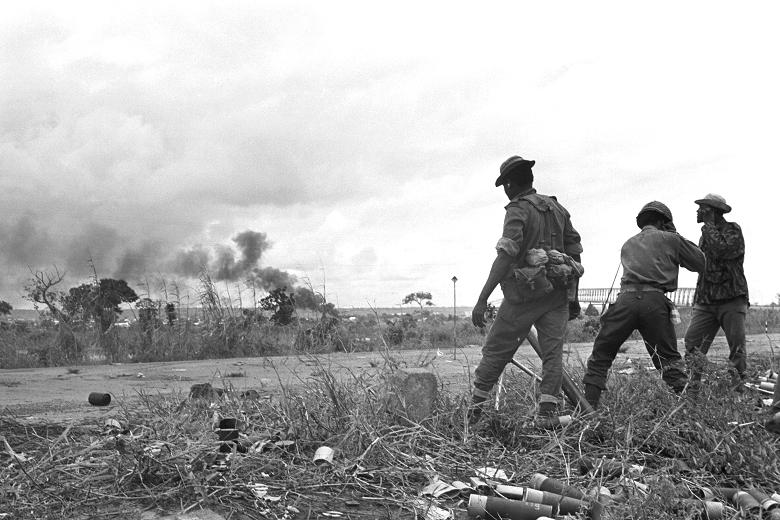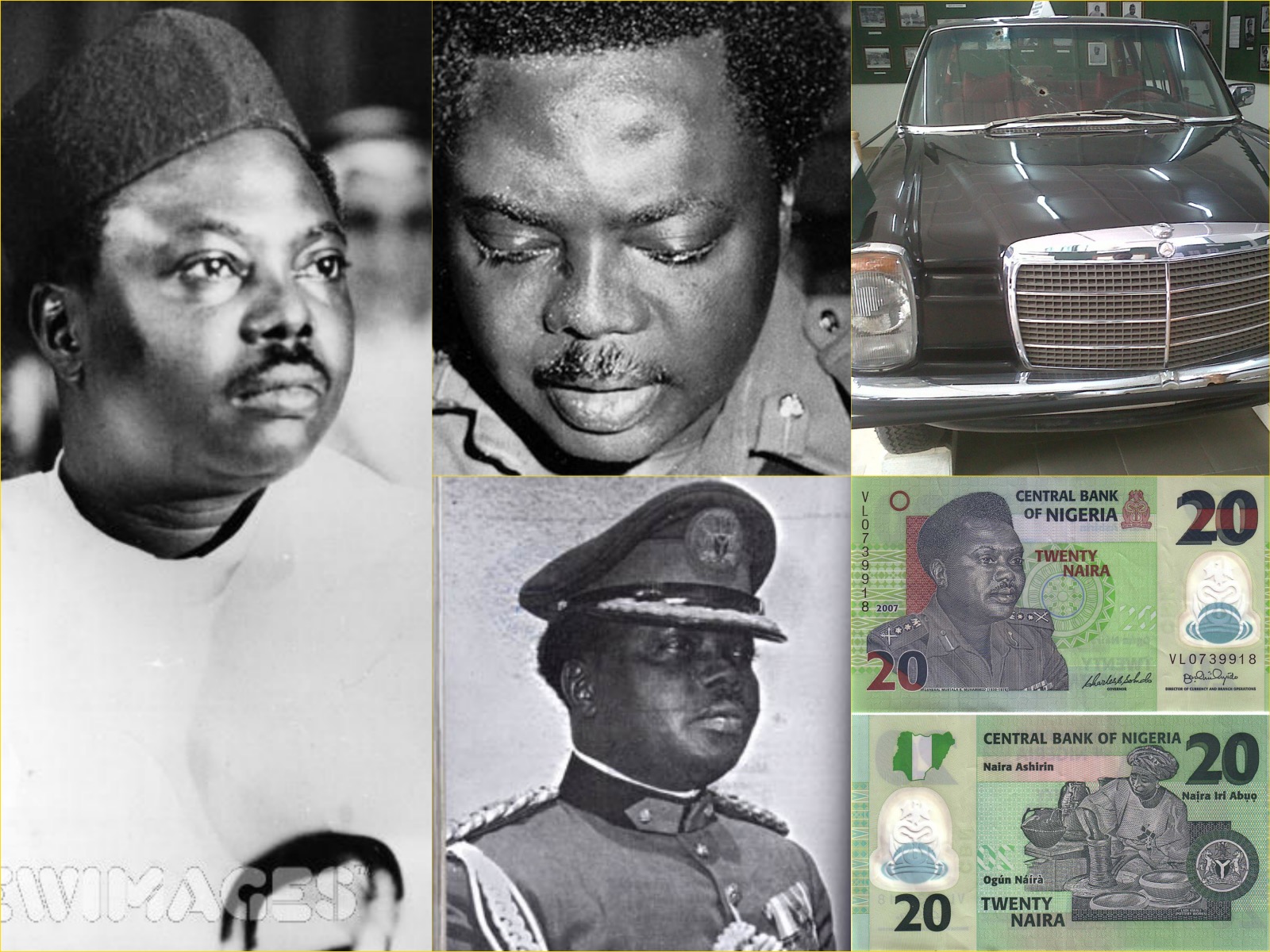by Okafor Udoka
The factual history of a nation is the nation itself because it presents a detailed, unbiased and accurate account of what was, what is and what could be if lessons of history are applied in the leadership and development of a country. However, the case of Nigeria is too “good” to be termed history talk less of a factual one as accounts have been “dressed” to suit the whims and caprices of the power mongers and, in some cases, the media.
It is on the strength of the foregoing that the young people are today taught, in “school” and homes, to celebrate and indeed adopt as role models characters who have no pride of place in human history. It is saddening to read on social networks youth celebrating Murtala Ramat Muhammed today. Yes, death is the very end of every man but on what basis can a Nigerian mark the remembrance of the death of Murtala Ramat Muhammed? What for?
ALSO READ: Remembering General Murtala Mohammed: Forty Years On, By Femi Fani Kayode
It is no longer news that Murtala Muhammed supervised the greatest genocide in human history- the Asaba genocide. After murdering, Major Gen J. U. T Ironsi, his commander-In-chief and master minding the pogrom of 1966 in his capacity as the Inspector of Army Signals unit, young Murtala craved for heroism and more blood in Nsukka and fired the first shot that led to the Civil war which claimed the over 4 million lives of Igbos; in an attempt to win the war he had started, he hurriedly chiselled miscreants, ex-convicts and men of no character into 2 Division and marched eastwards, hence commencing the history of genocide from Benin to Onitsha.

As the 2 Division captured Benin, Murtala led his soldiers to loot the Central of Bank of Nigeria in Benin to celebrate his “heroic” feat of conquering “Biafran rebels” before embarking on a raping spree, maiming and killing of defenseless Nigerians; Murtala’s squad had no mercy, they raped Igbo women, executed the pregnant ones and had their fetuses disembowelled and littered on the streets of Agbor to Asaba. He reached his peak with the lining up and killing of over 2000 Igbo men and boys at Asaba on October 7, 1967 for alleged “Biafra sympathy” before crossing the Niger River to kill 300 people who had ran into a Church for safety from invading federal forces.
It is an open secret that Murtala was the most indiscipline and tactless soldier who caused the Federal government lives and ammunitions during the civil war; according to Retired Major-General James Olululeye “Murtala had very little respect for constituted authority while he would not tolerate disrespect from subordinates”. He challenged Major Gen Yakubu Gowon on several occasions and threatened to “remove him” from office the way he brought him to office. And finally, he did but as a fearful soldier, he propped up young colonels to do the hard work and flew back into the country after the coup. Responding to newsmen after his sack in far away Uganda while attending OAU meeting, Major Gen Yakubu Gowon said, “Murtala madly took over government”.
RELATED: Asaba Mass Genocides of 1967: Shall Murtala Ever Be Forgiven?
As the Head of state, he could not assert himself as a Kano State indigene nor Bendel State as evident in his first tour of Mecca with the Emir of Kano and ruler of Auchi owing to the fact that his grandfather had migrated to Kano from Auchi in search of a greener pasture. The fear that open acceptance of his Auchi lineage would land him in political trouble impeled Murtala to distance himself from his lineage and indeed people of Auchi.
The arrival of Murtala as the Nigeria’s Head of state signalled the end of third development plan and systemic development of Nigeria as he abruptly suspended its implementation and went ahead to entrench the elevation of mediocrity in the civil service with the sacking of competent civil servants, military service men and public official hovering over 10, 000.
The story of Murtala is that of senseless bloodshed as he also owned up when confronted during coup planning stage by the young colonels who were instrumental to his installation as the Head of state, the shameless Murtala said “I have enough blood on my hands, I don’t wish to add more”. Indeed Murtala represent not a hero or a name worthy of mentioning in civilized societies and to the hearing of the young generation. No wonder Chief Sam I Mbakwe had to move manfully in revising Queen Elizabeth Hospital (FMC) Umuahia to its original name immediately he became the Governor of old Imo State; the hospital was earlier renamed by Olusegun Obasanjo’s government to immortalize Murtala.
The face of Murtala adorns the N20 note; as everything associated with Murtala, many Nigerians had lost their lives as a result of N20 at police checkpoints and violent crimes involving N20 are uncountable, and these crimes sadly leads to deaths. One begins to wonder how many more would die before the CBN and FG realizes that the face of Murtala which adorns that N20 note is an aberration to humanity and insult to the dead as well as a disgrace to the living.
As the Head of state, Murtala had the best chance to apologize to Nigerians, especially ndigbo, for his role in orchestrating the 1966-70 genocide against humanity but he arrogantly carried on as if he did not cause Nigeria and its people pains, bloodshed, and retrogression. Hence to the young generation, we shall urge: sing not Murtala’s praises in Aba, celebrate him not in Ikole-Ekiti and never stop to condemn his role in our national history in Sokoto; let posterity never be kind to him and may we have a president that will manfully consign him into the dustbin of history where he rightly belongs by renaming the nation’s busiest International airport in Lagos and try him posthumously at ICC, Hague soonest while giving befitting national burial and remembrance to those who died by his guns from Benin to Asaba and Nsukka.
Okafor C. Udoka is a socio-political analyst.
The opinions expressed in this article are solely those of the author.







